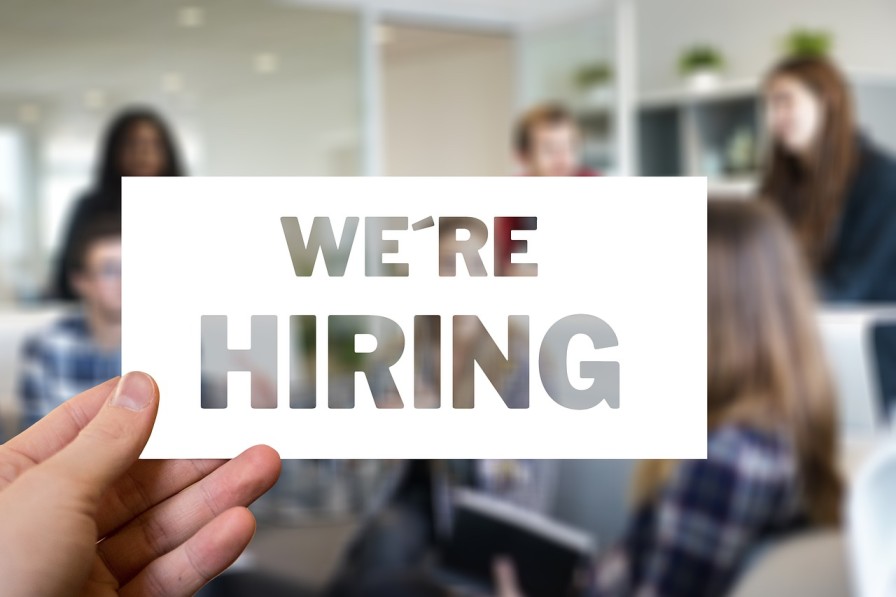The Transformative Impact of AI on the Future of Employment
As AI continues to advance, its influence on repetitive jobs is undeniable. By 2027, AI promises to generate new employment opportunities, redefining workplaces and business strategies. Discover how organizations can harness AI's potential to stay competitive and foster a diverse workforce.

The Transformative Impact of AI on the Future of Employment
Artificial Intelligence (AI) is poised to revolutionize the employment landscape, particularly in the realm of repetitive jobs. By 2027, AI is expected to not only replace certain tasks but also create a wealth of new employment opportunities. As businesses and individuals navigate this transition, understanding the implications and opportunities AI presents is crucial.
The Evolution of AI in the Workforce
AI's journey began decades ago, and its capabilities have grown exponentially over the years. From simple automation to complex decision-making, AI is now an integral part of modern business strategies. Raj Reddy, the first Indian PhD in AI from Stanford University, laid the groundwork for what AI could achieve, and today, the technology continues to break new ground.
AI's Impact on Repetitive Jobs
Repetitive tasks are often mundane, requiring little creativity or critical thinking. These jobs are prime candidates for automation. According to industry experts, by 2027, AI will have significantly transformed these roles, allowing humans to focus on more strategic and innovative tasks. The automation of repetitive jobs is not just about efficiency but also about unlocking human potential for more meaningful work.
Creating New Employment Opportunities
Contrary to fears of job loss, AI is set to create new roles. A study by the World Economic Forum predicts that AI will generate 97 million new jobs globally by 2025. These roles will span across data analysis, machine learning, AI ethics, and more. Companies must prepare to train their workforce in these emerging fields to remain competitive.
Adapting to Technological Advancements
For organizations, adapting to AI means more than just adopting new tools. It requires a cultural shift towards embracing technology and fostering continuous learning. This involves investing in employee training programs to equip staff with the skills needed to work alongside AI. As the Hyderabad Management Association highlights, adaptability is key to maintaining a competitive edge.
The Importance of Diversity in AI Adoption
As AI becomes more prevalent, diversity in the workforce becomes increasingly important. Diverse teams bring varied perspectives, leading to more innovative solutions. Madan Pillutla, Dean of the Indian School of Business, emphasizes that organizations should prioritize diversity in hiring, focusing on learning abilities rather than traditional qualifications. This approach not only enhances creativity but also ensures that AI solutions are inclusive and equitable.
Addressing Privacy Concerns
With the rise of AI, data privacy concerns are paramount. As organizations collect and analyze vast amounts of data, ensuring the protection of personal information is critical. Companies need to implement robust data governance frameworks and comply with regulations to safeguard customer trust.
AI in Different Sectors
AI's impact is not confined to business operations alone. In healthcare, AI is transforming patient care through predictive analytics and personalized treatment plans. In finance, AI-driven algorithms are enhancing fraud detection and streamlining customer service. The potential applications of AI are vast, and as technology evolves, its influence will only grow.
Preparing for the Future
To successfully integrate AI into the workforce, organizations must prioritize research and development. Building comprehensive databases and investing in AI research will ensure that businesses remain at the forefront of innovation. Collaboration between academia and industry will also be crucial in fostering a skilled AI workforce.
HONESTAI ANALYSIS
AI is reshaping the employment landscape, offering both challenges and opportunities. By 2027, AI will have transformed repetitive jobs, creating new roles and redefining business strategies. Organizations that embrace AI, prioritize diversity, and address privacy concerns will be well-positioned to thrive in this new era. As AI continues to evolve, staying informed and adaptable will be the keys to success.

